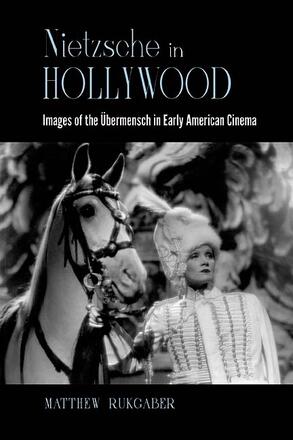
Nietzsche in Hollywood
Images of the Übermensch in Early American Cinema
Alternative formats available from:
Argues that Nietzsche’s idea of the Übermensch was a central concern of filmmakers in the 1920s and 1930s.
Description
Nietzsche in Hollywood offers a compelling and startling history of Hollywood film in which the German philosopher Friedrich Nietzsche and his idea of the Übermensch looms large. Though Nietzsche's philosophy was attacked as egoistic and a sociopathic version of Darwinism in films from the 1910s, it undergoes a series of cinematic and philosophical transformations in the 1920s and 1930s under the eye and pen of some of the most significant names in early Hollywood, including Erich von Stroheim, Josef von Sternberg, Ben Hecht, Howard Hawks, and Ernst Lubitsch. In addition to establishing historical connections between Nietzsche's philosophy and these filmmakers, the book provides philosophical readings of many Hollywood films through the lens of the Nietzschean ideas of "perspectivism" and the critique of morality. Offering a new history of classic Hollywood films as well as a new approach to film philosophy, Nietzsche in Hollywood reveals a reading of the philosopher in American culture that has largely been ignored.
Matthew Rukgaber is Lecturer in Philosophy at Eastern Connecticut State University.
Reviews
"This book makes a strong and compelling case for the dynamic influence of Nietzsche's philosophy on American film culture of the 1910s and 1920s, exploring the transgressive value systems embedded within both canonical and lesser known Hollywood films of the era. Not only film scholars but philosophers too will find much to dwell on in this surprising discovery of Nietzsche's most demanding and edifying ideas in early American film." — Trevor Mowchun, University of Florida